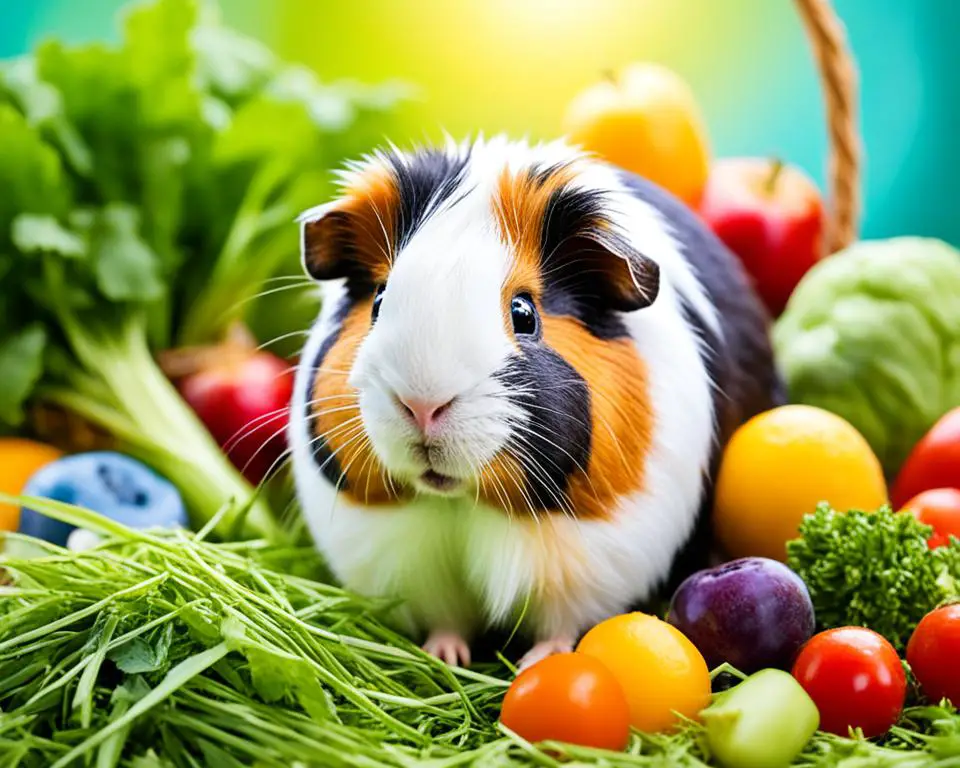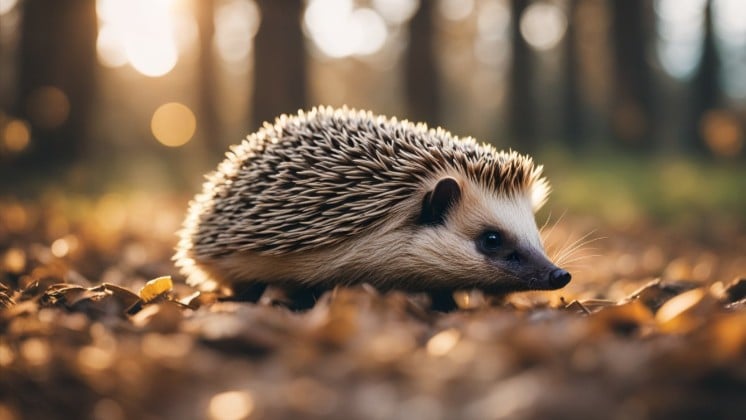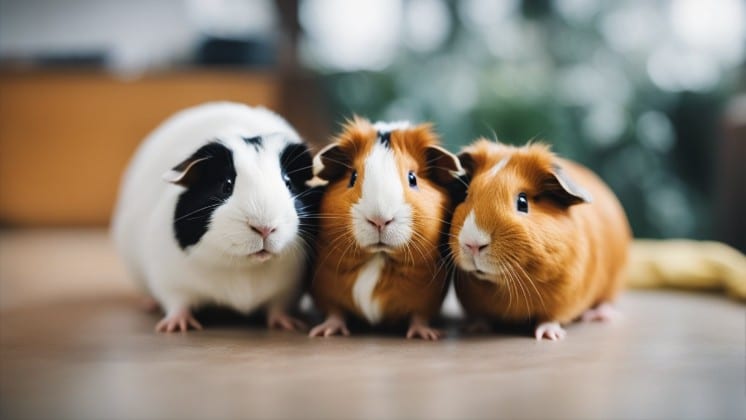If you are a new guinea pig owner, you may be wondering what the best veggies are for your furry friend. As a herbivore, guinea pigs require a healthy diet filled with fresh vegetables in order to stay healthy and active.
In this comprehensive guide, we will discuss the best veggies for guinea pigs daily that will provide them with all the essential vitamins and minerals they need to thrive.
Ready? Let’s begin!
What vegetables can guinea pigs eat?
As responsible guinea pig owners, we want to ensure that our pets are getting all the necessary nutrients they need to thrive. One way to achieve this is by including a variety of vegetables in their diet.
Best veggies for guinea pigs to eat
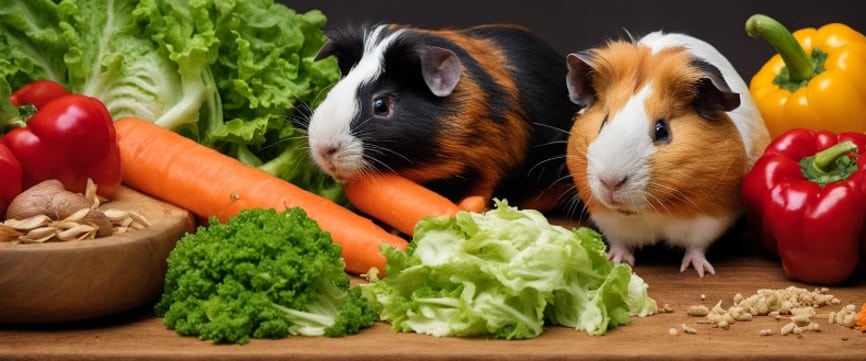
First things first, ensure, if you can, to head to your local farmer’s markets and get fresh produce. The fresher, the better, as it will provide your guinea pig with the most nutrients.
The following veggies can be included in your guinea pig’s daily diet:
1. Leafy greens
Leafy greens such as romaine lettuce, kale, spinach, and Swiss chard are great sources of vitamins and minerals.
They are also low in sugar and high in fiber, making them an ideal addition to a guinea pig’s diet.
However, it’s important to avoid iceberg lettuce, as it has little nutritional value and can cause digestive issues, like bloat, since it is high in water.
2. Bell peppers
Bell peppers are a great source of vitamin C, which is essential for a guinea pig’s health. They also contain other important vitamins and minerals such as vitamin A and potassium.
Bell peppers come in a variety of colors, so it’s easy to add some variety to your guinea pig’s diet.
3. Carrots
Carrots are another great source of vitamin A and are also high in fiber.
They are a sweet treat that most guinea pigs love, but it’s important to feed them in moderation due to their higher sugar content.
4. Cucumbers
Cucumbers are a great source of hydration for guinea pigs, as they are mostly made up of water.
They also contain some vitamins and minerals such as vitamin C and potassium. However, it’s important to remove the seeds as they can cause digestive issues.
5. Broccoli
Broccoli is a great source of vitamin C and other important nutrients such as vitamin K and fiber.
However, it should be fed in moderation due to its higher calcium content, which can lead to bladder stones if fed in excess.
6. Parsley
Parsley is a great source of vitamin C and also contains other important vitamins and minerals such as vitamin A and iron.
It can be fed in small amounts as a tasty treat for guinea pigs.
Other vegetables
Other vegetables that can be included in a guinea pig’s diet include zucchini, celery, cauliflower, and bok choy.
It’s important to introduce new vegetables slowly and in small amounts to avoid digestive issues.
How do I feed my guinea pig vegetables?
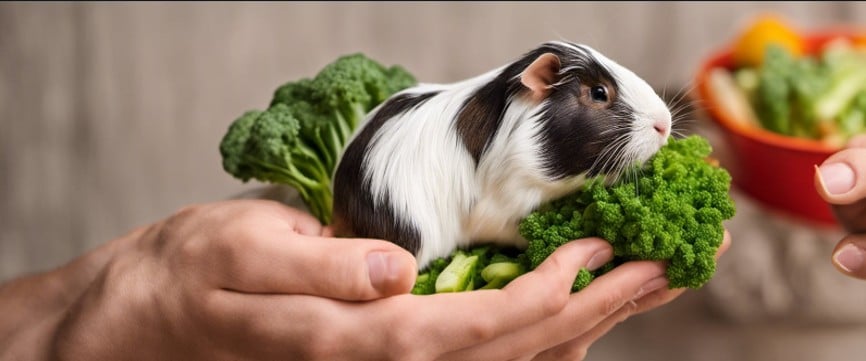
Feeding your guinea pig vegetables is an important part of their diet. Here are some steps you can follow to feed your guinea pig vegetables:
- Wash the vegetables. Before feeding your guinea pig any vegetables, make sure to wash them thoroughly to remove any dirt or pesticides.
- Cut the vegetables into small pieces. Guinea pigs have small mouths, so it’s important to cut the vegetables into small pieces that they can easily chew and swallow.
- Introduce new vegetables slowly. If you’re introducing a new vegetable to your guinea pig’s diet, do it gradually. Start with a small amount and see how they react. If they have any digestive issues or show signs of discomfort, stop feeding them that vegetable.
- Don’t overfeed. While vegetables are an important part of a guinea pig’s diet, they should not make up the majority of their food. Offer them a variety of vegetables along with hay and pellets.
Remember to always provide your guinea pig with fresh water and clean their food bowl regularly.
How often should guinea pigs eat vegetables?
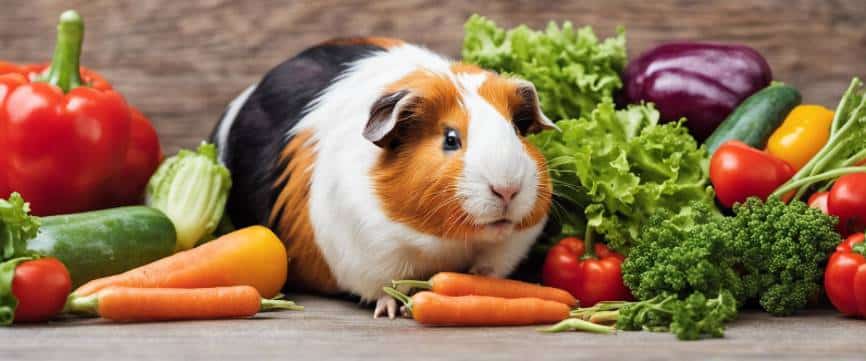
Guinea pigs should eat vegetables every day as part of their balanced diet.
Vegetables provide important nutrients such as vitamin C, fiber, and other vitamins and minerals that are essential for their health.
It is recommended that guinea pigs eat about 1 cup of fresh vegetables per day, divided into two or three small servings.
This will help to ensure that they are getting a variety of nutrients and also prevent overeating.
It’s important to note that not all vegetables are safe for guinea pigs, so it’s important to do your research and only offer them vegetables that are safe and healthy for them.
Also, make sure to wash the vegetables thoroughly before feeding them to your guinea pig to remove any dirt or pesticides.
Read also: Why Do Guinea Pigs Eat So Much? (Explained)
Cheapest vegetables for guinea pigs
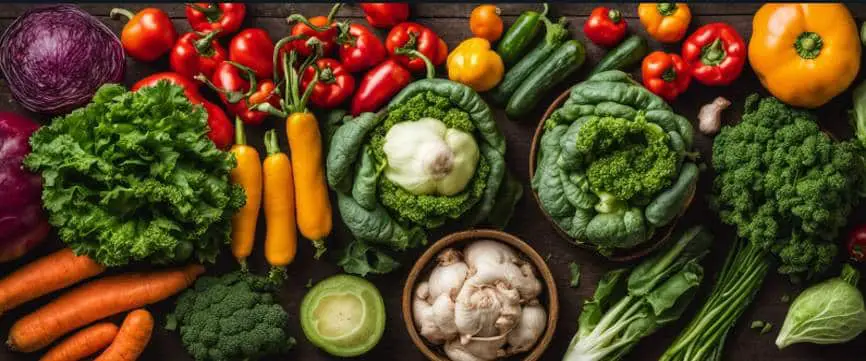
Guinea pigs require fresh vegetables as a part of their balanced diet. While some vegetables may be more expensive than others, there are still plenty of affordable options. Here are some of the cheapest vegetables for guinea pigs:
1. Carrots. Carrots are a great source of vitamin A and are usually inexpensive.
2. Cucumber. Cucumbers are a good source of hydration and are usually affordable.
3. Bell Peppers. Bell peppers are a good source of vitamin C and are often available at a reasonable price.
4. Lettuce. Lettuce is a good source of fiber and can be found at a low cost.
5. Broccoli. Broccoli is a good source of vitamin C and other nutrients and can be found at a reasonable price.
What vegetables should you avoid feeding your guinea pig?
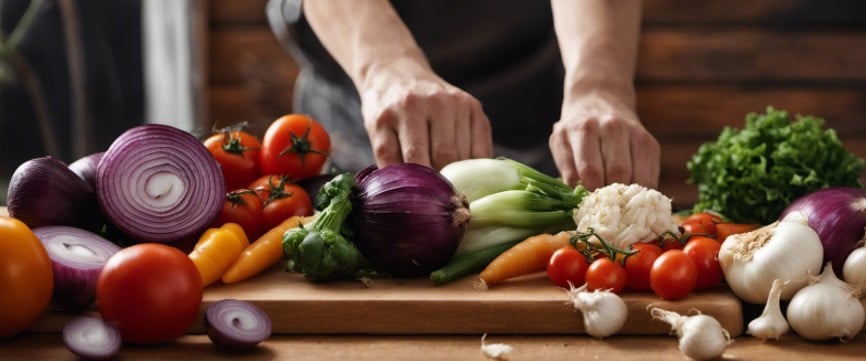
While guinea pigs can eat a variety of vegetables, there are some vegetables that you should avoid feeding them. Here are some vegetables that are not safe or healthy for guinea pigs:
Sweet potatoes
Sweet potatoes are high in natural sugars, which can cause digestive issues in guinea pigs. While they are a good source of vitamin C and other nutrients, it’s best to feed them in moderation.
Seeds
Seeds are not recommended for guinea pigs as they are high in fat and can cause digestive problems. Seeds such as sunflower, pumpkin, and sesame seeds should be avoided.
Potatoes
Potatoes are high in starch and can cause bloating and digestive issues in guinea pigs. It’s best to avoid feeding them to your furry friends.
Onions
Onions are toxic to guinea pigs and should be avoided at all costs. They can cause anemia and other serious health issues.
Beets
While beets are a good source of vitamin C, they are also high in natural sugars. It’s best to feed them in moderation and avoid feeding the leaves as they are high in oxalic acid.
Remember to always introduce new foods gradually and monitor your furry friend’s reaction to them.
Read also: Can Guinea Pigs Eat Arugula? A Quick Guide
Importance of hay in guinea pig’s diet
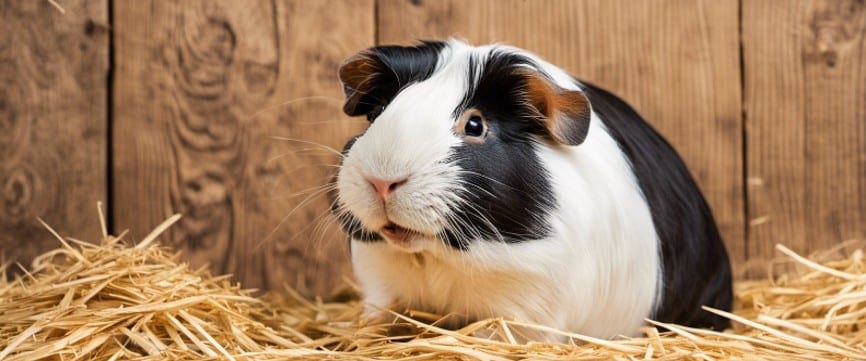
Hay is an essential component of a guinea pig’s diet. It is a vital source of fiber that helps maintain their digestive health.
Guinea pigs require a constant supply of hay to keep their digestive system working correctly. As herbivores, guinea pigs have a unique gastrointestinal system that requires a specific diet to function correctly.
Timothy hay is the most common type of hay recommended for guinea pigs. It is low in calcium and high in fiber, making it an ideal food source for these small animals. Guinea pigs should have access to unlimited amounts of hay throughout the day.
Grass hay is another excellent option for guinea pigs. It is also high in fiber and low in calcium, making it a healthy choice for their diet.
However, it is essential to note that some types of grass hay, such as alfalfa hay, are high in calcium and should be avoided.
Fruits as treats for guinea pigs
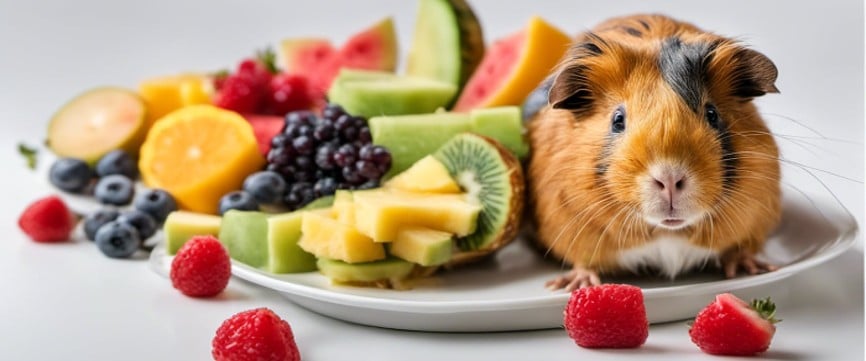
While we know that vegetables should make up the majority of a guinea pig’s diet, fruits can be given as treats in moderation.
Fruits contain natural sugars, so it’s important to limit their intake to prevent obesity and other health problems.
Some fruits that are safe for guinea pigs to eat include:
- Apples. Remove the seeds and core, as they contain trace levels of cyanide, which can be poisonous.
- Strawberries. It is high in vitamin C but also high in sugar, so feed in moderation.
- Blueberries. They are also high in vitamin C, but again, they should be fed in moderation due to their sugar content.
- Kiwi. High in vitamin C and low in sugar.
It’s important to note that citrus fruits like oranges should be avoided as they are too acidic for guinea pigs and can cause mouth sores.
When feeding fruits as treats, it’s recommended to limit it to once or twice a week and to only feed small amounts at a time. Too much fruit can lead to digestive issues and obesity.
Summary
Before we move on to the conclusion, we’ve summarized this article into a short list of key points for you to remember:
- Guinea pigs require fresh vegetables to stay healthy and active.
- The best veggies for guinea pigs include leafy greens, bell peppers, carrots, cucumbers, broccoli, and parsley.
- Guinea pigs should eat about 1 cup of fresh vegetables per day, divided into two or three small servings.
- Some vegetables to avoid feeding guinea pigs include sweet potatoes, seeds, potatoes, onions, and beets.
- Hay is an essential component of a guinea pig’s diet, providing vital fiber to maintain digestive health.
- Fruits can be given as treats in moderation but should be limited due to their natural sugar content. Safe fruits include apples, strawberries, blueberries, grapes, and kiwi.
Final thoughts
In conclusion, fruits can be a tasty and nutritious treat for guinea pigs when fed in moderation.
Stick to safe fruits like apples, strawberries, blueberries, grapes, and kiwi, and remember to limit their intake to prevent health problems.
Want to learn more about guinea pigs?
Ready to boost your knowledge to the next level? If so, check out the articles below:
- Can Guinea Pigs Become Cannibals? (Explained)
- Can You Get a Guinea Pig High?( Let’s Find Out)
- Why Do Guinea Pigs Hate? List of Things They Hate the Most



